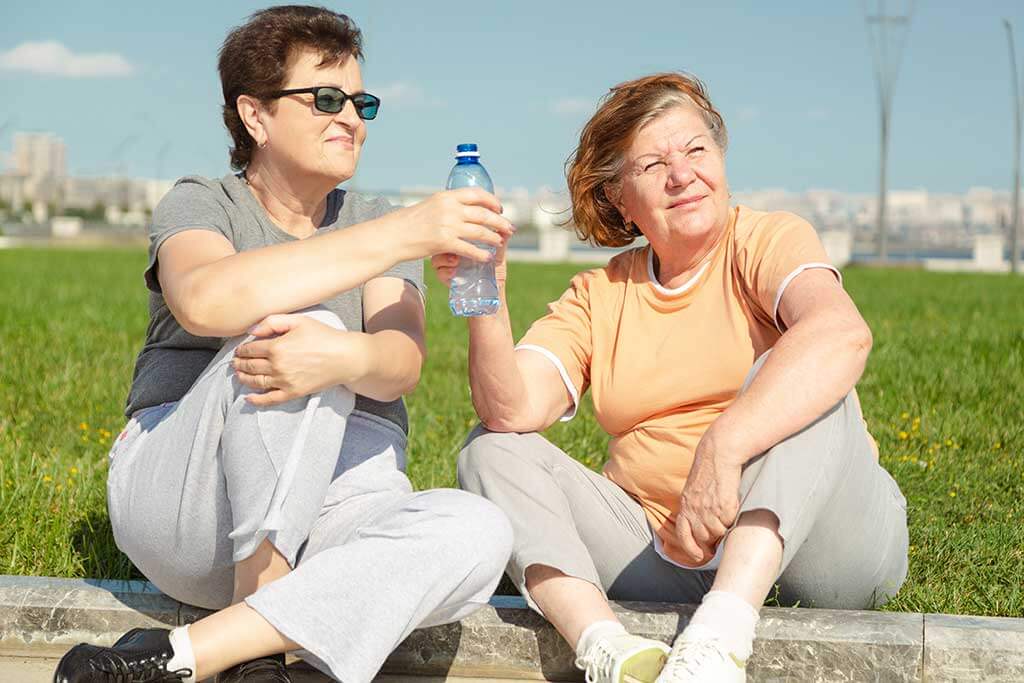For older folks, some health issues can happen quite suddenly. For example, pain, difficulty breathing, heart issues, fainting, and so on. Other health issues can be more insidious, slowly creeping upon them. One of these health issues is dehydration in the elderly. Because of its usually undetected symptoms, we tend not to recognize signs of dehydration until it’s severe. Keep a lookout for these signs to catch dehydration in older folks early.
Urine Amount And Color
What goes in, must come out. The amount and color of one’s urine can be an indicator of dehydration. Clear urine indicates good hydration, and conversely, darker urine could suggest dehydration.
Thirst Level
Feeling thirsty can be a huge sign of dehydration. Most adults are familiar with this, though older folks may sometimes disregard this indicator.
Other Physical Indicators
When the following symptoms show up, it’s a signal that things are getting more dire. Watch out for:
- Weak muscles
- Fatigue
- Dry mouth
- Headaches
- Giddiness
- Low blood pressure
- Fast-beating heart
- Delirium
In addition, severe dehydration can result in shriveled, dry skin and sunken eyes.
You could do an easy test to check for signs of dehydration. First, pinch the skin on the back of your hand, and see how quickly the skin goes back to its original form. Snapping back instantly means there’s no issue, however, if it retains the tented shape for a while, that’s a sign of dehydration.
Causes of Dehydration
The core reasons are loss of bodily fluids as well as insufficient water intake. For healthy adults, it tends to be because we forget to drink water over the course of a busy day.
For older folks, however, it can be for a host of different reasons. Those who suffer from dementia or Alzheimer’s tend to forget to drink water regularly. Those who have mobility issues may also find it hard to access water if they’re staying alone.
Older folks with diabetes may experience frequent urination and don’t drink enough water to replenish their bodily fluids. If your older loved ones catch the flu, they may also experience dehydration from symptoms like diarrhea and vomiting, and take longer to recover as well.
Check on your older loved ones regularly, and stay vigilant about issues that may cause them to become dehydrated.
How can we protect our older loved ones from dehydration, then?
Teach Them The Importance of Staying Hydrated
Older folks who are still largely independent will want to take charge of their own life. Leave it to them to drink enough water, but inform them of the importance of hydration.
Get Them to Drink Small Sips Throughout The Day
Keep a water bottle with them at all times and get them used to drinking from it regularly.
Stock The Fridge With Foods High in Water Content
Fruits, vegetables, and yogurt can keep older folks hydrated.
Take Note of The Weather
Hotter or dryer weather can hasten dehydration.
Reduce Consumption of Diuretic Drinks
Alcohol, coffee, tea, and some protein drinks can increase urination, worsening dehydration.







